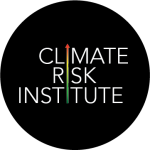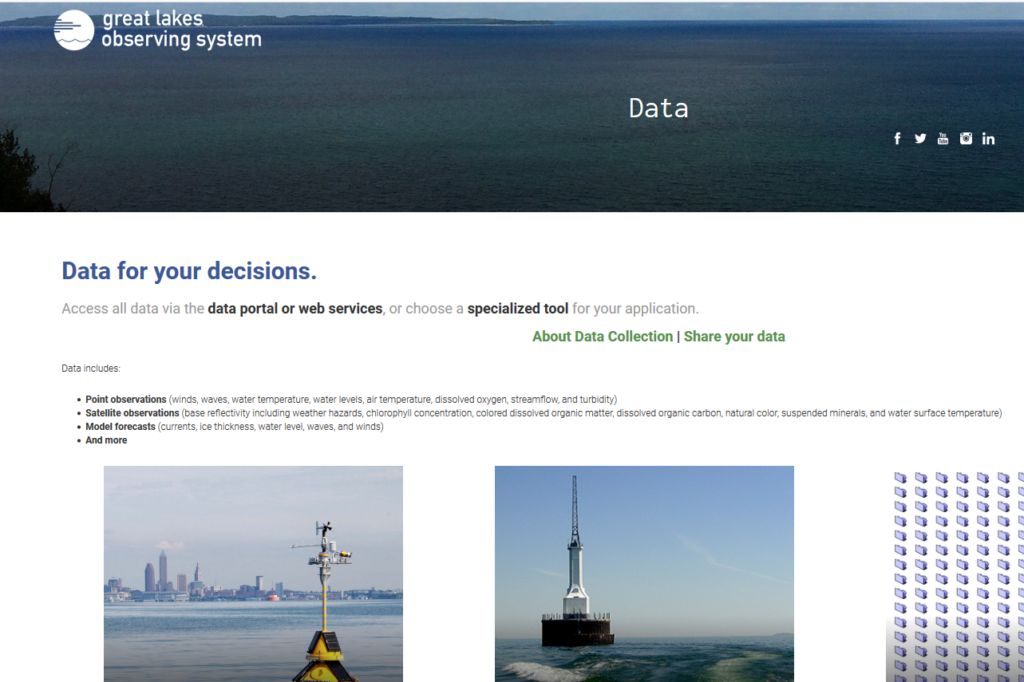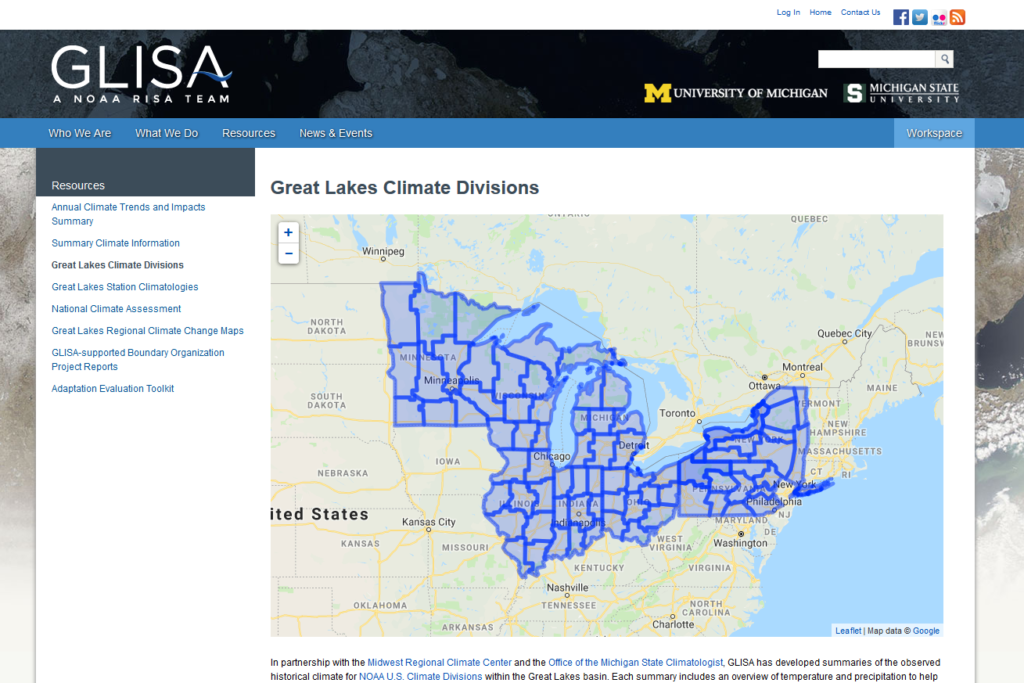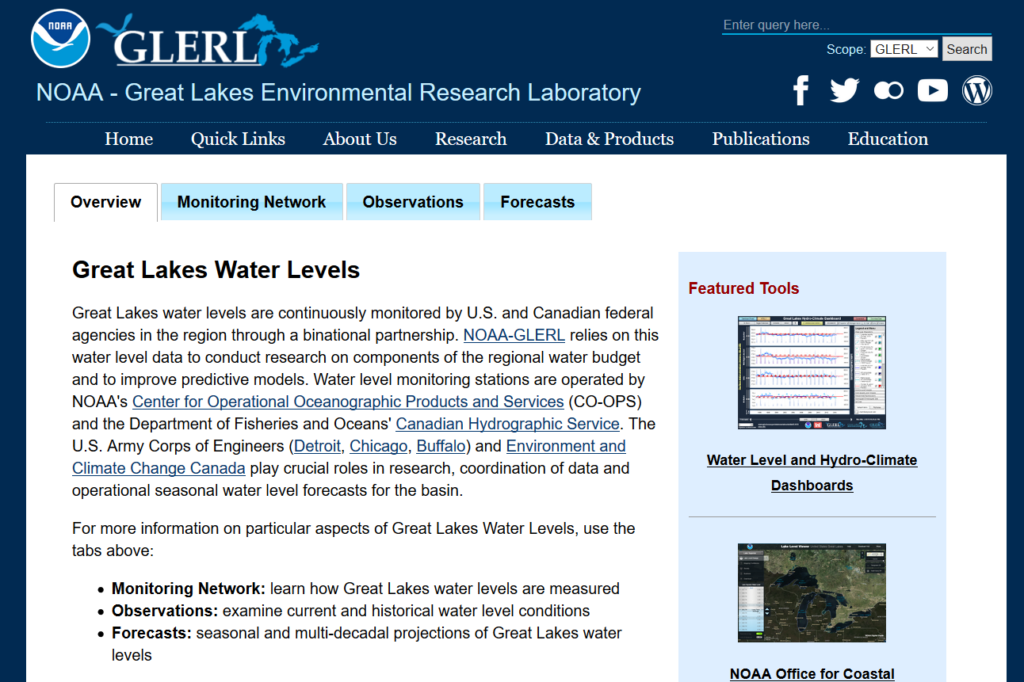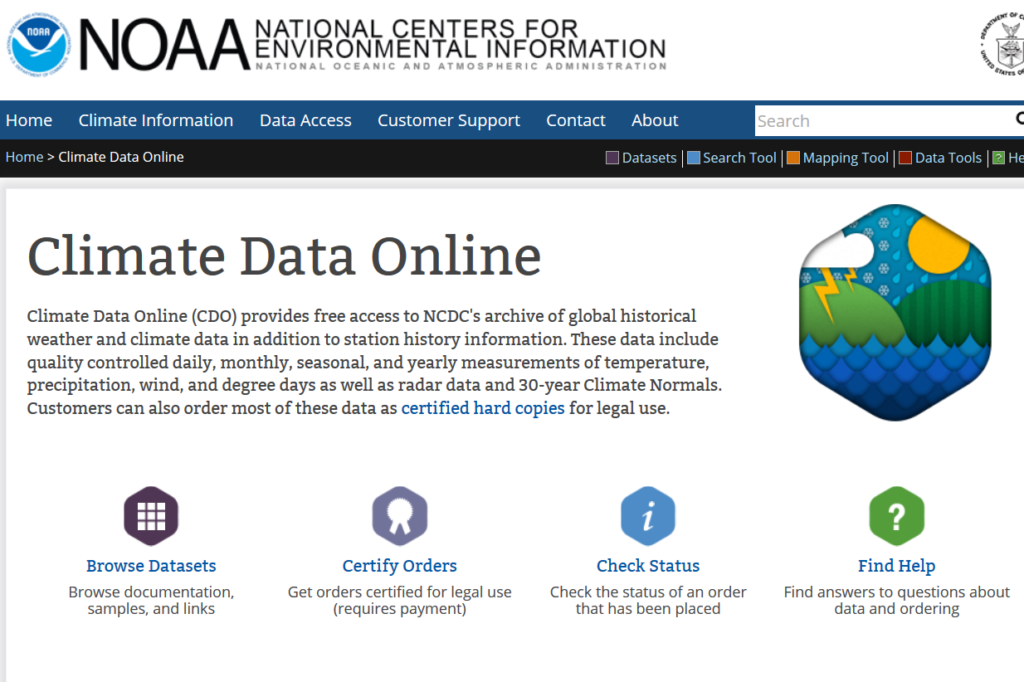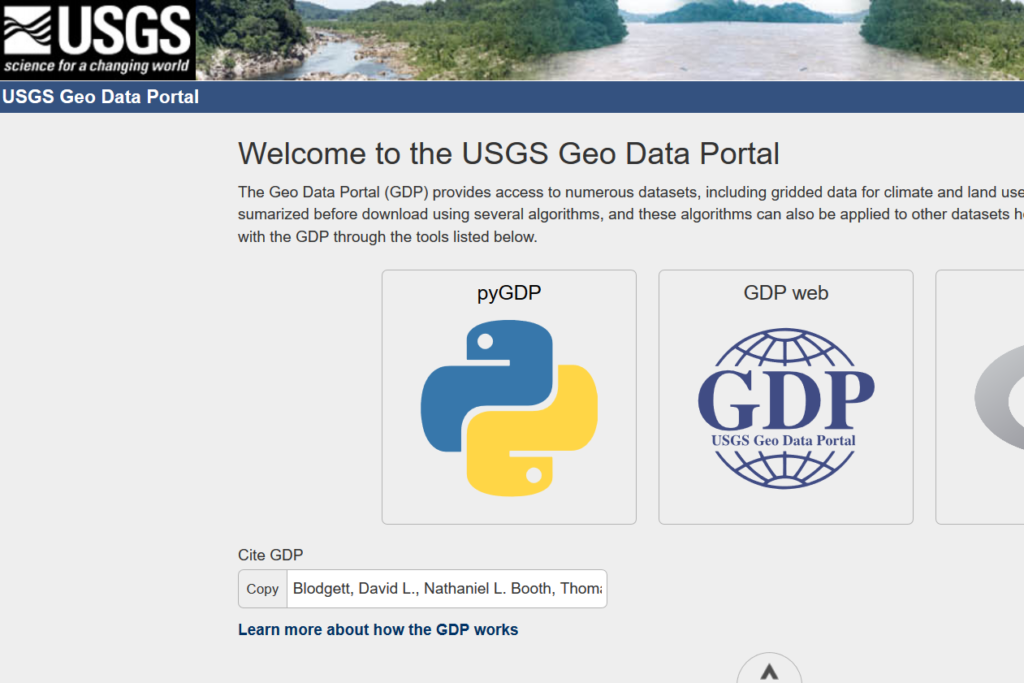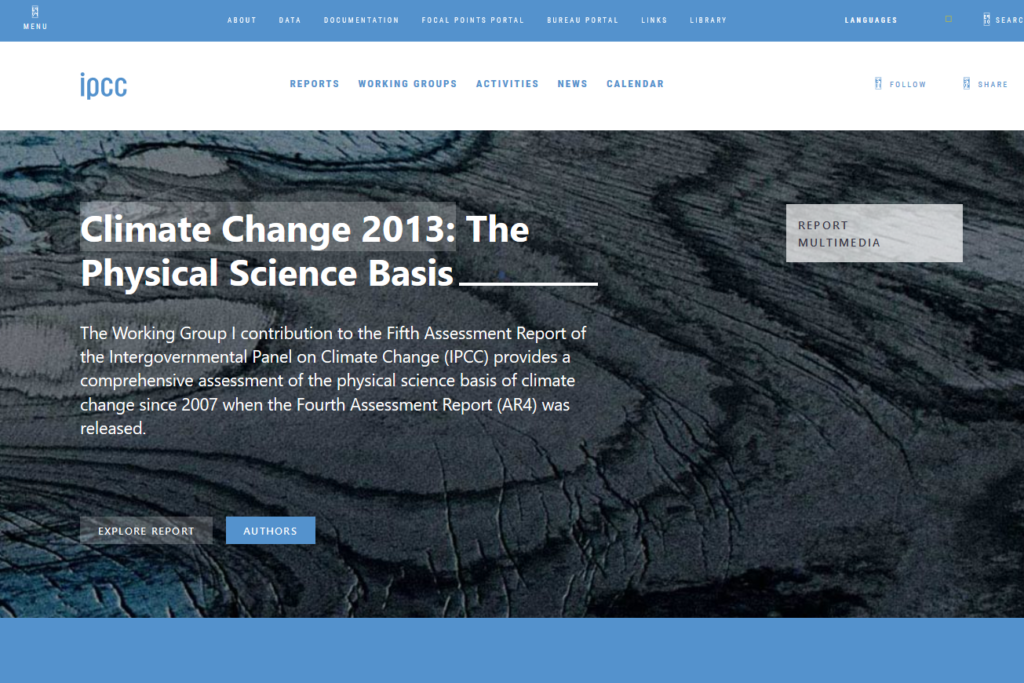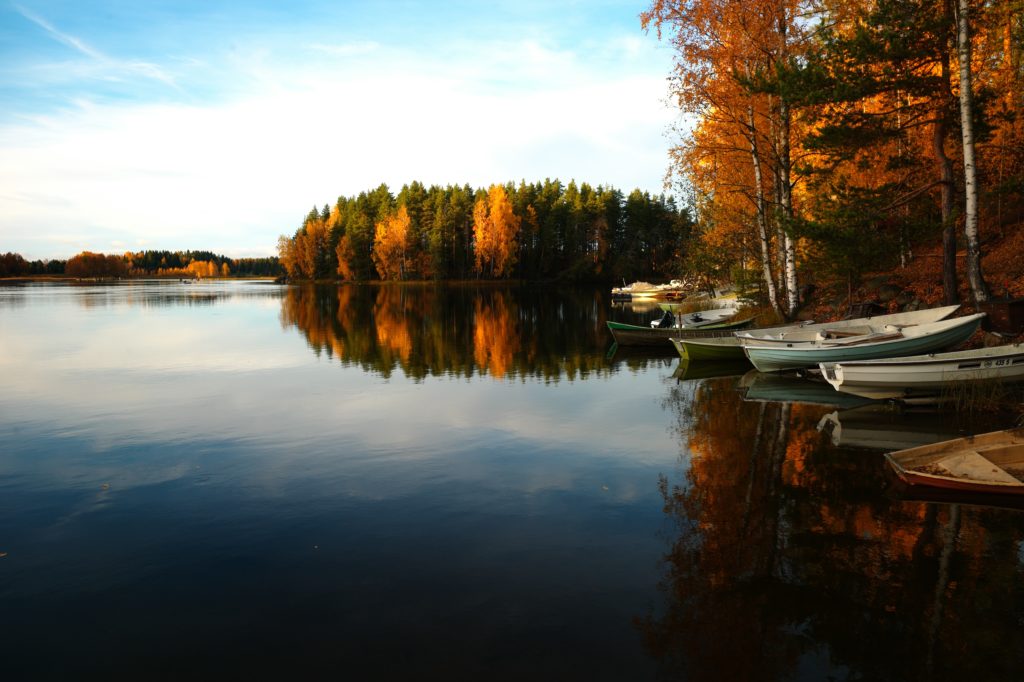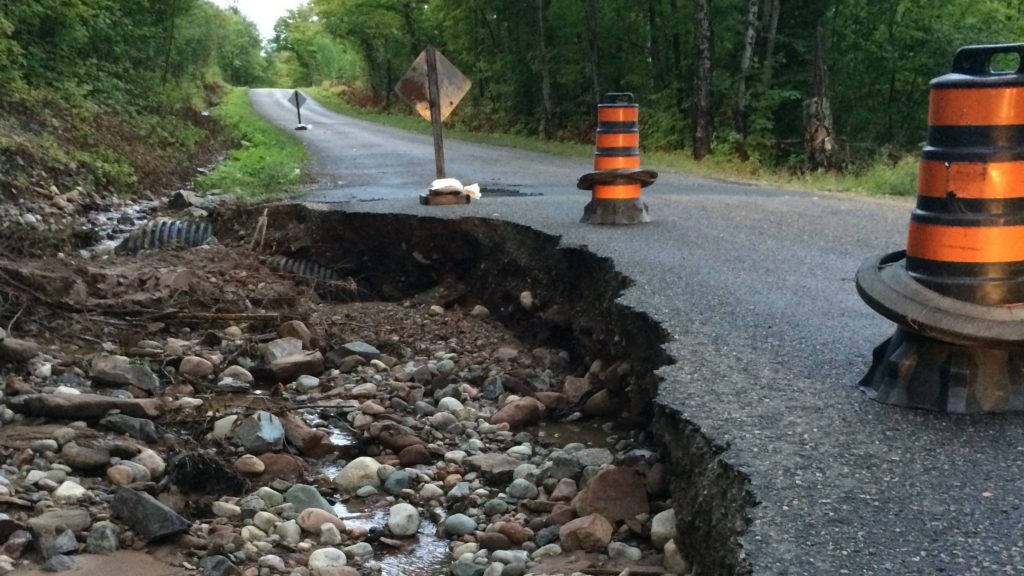Archive for September 2019
Great Lakes Observing System
Data includes point observations (winds, waves, water temperature, water levels, air temperature, dissolved oxygen, streamflow, and turbidity), satellite observations (base reflectivity including weather hazards, chlorophyll concentration, colored dissolved organic matter, dissolved organic carbon, natural color, suspended minerals, and water surface temperature), model forecasts (currents, ice thickness, water level, waves, and winds) and more. visit this…
Read MoreGreat Lakes Integrated Sciences & Assessments (GLISA)
The Great Lakes Integrated Science and Assessments (GLISA) website hosts a collection of climate data resources from different institutions that provide international, federal, regional and local climate data on a variety of spatial and temporal resolutions. The data is derived from several GCM and RCM models, downscaled projections and gridded observations. Practitioners are able to…
Read MoreGreat Lakes Water Level Dashboard
The National Oceanic and Atmospheric Administration (NOAA) has developed the Great Lakes Water Level Dashboard and the Great Lakes Hydro-Climate Dashboard for use by practitioners in monitoring lake levels and forecasts for the Great Lakes. The Water Level Dashboard provides users with the ability to view lake levels and forecasts in a variety of timescales.…
Read MoreNOAA National Climatic Data Centre
Climate Data Online (CDO) provides free access to the National Climatic Data Centre’s archive of historical weather and climate data in addition to station history information. The dataset and mapping tools provide practitioners with documentation and information, as well as options for viewing data by regions. Developed by the National Oceanic and Atmospheric Administration (NOAA),…
Read MoreUSGS Geo Data Portal
Many natural resource management questions involve a variety of data that are challenging to work with using typical computer resources. The USGS Geo Data Portal (GDP) removes the barrier to these large or complex data by moving processing to the web. This gives researchers and managers access to powerful computers and software tools with minimal…
Read MoreIPCC – Global and Regional Climate Change Projections
The Working Group I contribution to the IPCC’s Fifth Assessment Report (AR5) considers new evidence of climate change based on many independent scientific analyses from observations of the climate system, paleoclimate archives, theoretical studies of climate processes and simulations using climate models. It provides a comprehensive assessment of the physical science basis of climate change…
Read MoreAssessing Vulnerability to Climate Change in a Northwestern Ontario Forest Region (2018–2020)
The Climate Risk Institute applied a climate change vulnerability assessment and adaptation planning framework to the Black Spruce Forest in northwestern Ontario, which is managed by Resolute Forest Products. The framework used was developed by the Canadian Council of Forest Ministers Climate Change Task Force. The aim of the project was to i) identify how…
Read MoreAssessing Climate Change Risk on Abandoned or Orphaned Mine Sites in Ontario, Yukon and Northwest Territories (2018–2020)
In partnership with the Northern Climate ExChange at Yukon College, the aim of this project was to identify climate change risks applicable to abandoned mines in Canada. Specifically, the project involved reviewing rehabilitation plans and documents for a selection of abandoned or orphaned mine sites to determine whether or how they account for climate change,…
Read MoreCoordinating Efforts for a Regional Chapter in the National Assessment on Climate Change Impacts and Adaptation (2017–2022)
The Climate Change Impacts and Adaptation Division of Natural Resources Canada coordinated a national-scale assessment of the state of knowledge on climate change impacts, risks and adaptation in Canada. As part of these efforts, a series of six chapters will be developed that address regional priorities for impacts and adaptation. The Climate Risk Institute, in…
Read MoreNorthern Climate Change Network (2018–2019)
The Climate Risk Institute is leading the Northern Climate Change Network (NCCN) – a group of five municipalities in northern Ontario looking to assess and manage the impacts of climate change on their communities, infrastructure, and natural systems. This initiative will lead to a reduction in climate change vulnerability for municipalities through two main areas.…
Read More